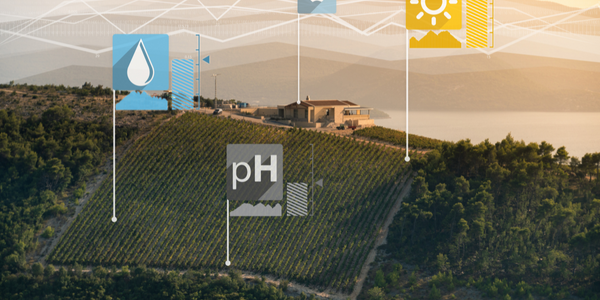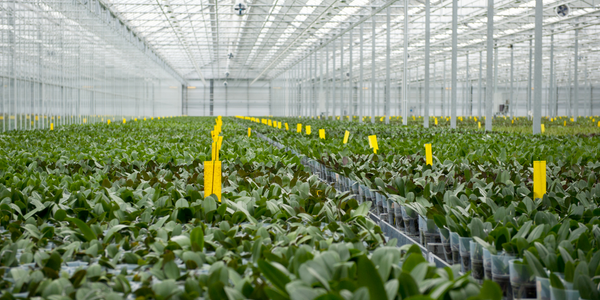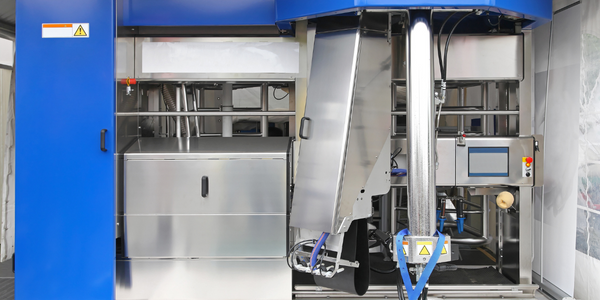Customer Company Size
Large Corporate
Region
- Asia
Country
- India
Product
- IBM Power 750
- IBM Power 740
- IBM AIX 7.1
- Oracle eBusiness Suite
- Oracle Database 11g
Tech Stack
- IBM Power Systems
- Oracle Databases
- Oracle E-Business Suite
Implementation Scale
- Enterprise-wide Deployment
Impact Metrics
- Productivity Improvements
- Cost Savings
Technology Category
- Platform as a Service (PaaS) - Data Management Platforms
Applicable Industries
- Agriculture
Applicable Functions
- Business Operation
- Procurement
Use Cases
- Supply Chain Visibility
- Predictive Maintenance
Services
- System Integration
- Cloud Planning, Design & Implementation Services
About The Customer
The Indian Council of Agricultural Research (ICAR) is an organization under the Department of Agriculture Research and Education, Ministry of Agriculture, Government of India (GOI). It is responsible for coordinating research and education in agriculture. With 110 institutes and 65 agricultural universities, ICAR represents one of the largest National Agricultural Research and Education Systems (NARS) in the world. ICAR aims to generate more income and employment opportunities for producers, and increase the competitiveness of farming in India, by promoting greater agricultural productivity and sustainability through the use of technology. Part of the effort to reinvigorate and modernize India’s agricultural sector includes the National Agricultural Innovation Project (NAIP), funded by The World Bank, which accords high priority to the generation and transfer of agricultural technologies, and innovations in the technology system.
The Challenge
The Indian Council of Agricultural Research (ICAR) was facing challenges in managing its operations effectively in a challenging environment where accurate data retrieval was required for faster decision-making and effective policy-making. The organization was struggling with keeping projects on track and under tight budgetary control due to lack of tight control over people, processes, and finances. ICAR wanted to improve upon this by driving greater transparency and more effective reporting. The organization recognized that more efficient information and financial management was paramount to its progress and sought to modernize, automate, and integrate transactional and reporting processes to improve transparency and efficiency.
The Solution
ICAR decided to standardize and simplify its operations on a common business platform to reduce complexity, eliminate cost duplication, and help staff work more efficiently in a centralized environment. After reviewing the market, ICAR selected Oracle E-Business Suite 12 as its strategic business platform, supported by Oracle databases. The Oracle solution includes an integrated suite of modules, including Financials, Grants, Purchase & Inventory, Projects, and Human Resources and Payroll. To help accelerate the configuration and deployment of the Oracle applications, ICAR sought the assistance of an experienced partner and selected IBM Global Business Services to help guide the project. The IBM and IASRI project teams worked closely with core teams across all functional areas of ICAR to complete initial solution design, build, test, and integration activities to custom the solution as per ICAR requirements.
Operational Impact

Case Study missing?
Start adding your own!
Register with your work email and create a new case study profile for your business.
Related Case Studies.

Case Study
Intelligent Farming with ThingWorx Analytics
Z Farms was facing three challenges: costly irrigation systems with water as a limited resource, narrow optimal ranges of soil moisture for growth with difficult maintenance and farm operators could not simply turn on irrigation systems like a faucet.

Case Study
Greenhouse Intelligent Monitoring and Control Solution
Farming Orchids is the most successful form of precision farming in Taiwan, and also the most exported flower. Orchids need a specific temperature and humidity conditions to grow and bloom, and its flowering time may not be in line with market demands, so the price collapses when there is overproduction. Therefore, some farmers began to import automated greenhouse control systems for breeding and forcing, which not only improves quality, but also effectively controls the production period and yield to ensure revenue. In 2012, an orchid farmer built a Forcing Greenhouse of about 200 pings (approximately 661 Square Meters) in Tainan, Taiwan. The system integrator adopted Advantech’s APAX-5000 series programmable automation controllers to build the control platform, coupled with Advantech WebAccess HMI/SCADA software, to achieve cloud monitoring. The staff of the orchid field can monitor important data anytime via smart phone, iPad, and other handheld devices, and control the growth and flowering conditions. System requirements: In the past, most environmental control systems of orchid greenhouses in Taiwan used PLCs (Programmable Logic Controller) with poorscalability and control, and could not be connected to the Internet formonitoring from the cloud. For advanced database analysis and networking capability, the PC platform must be adopted. Therefore, PAC Systems (Programmable Automation Controller) with both PLC programming capabilities andPC functions is a better choice.The environmental control of the Orchid greenhouse switches on and off devices like fan, shade net, cooling/heat pump, liquid flow control, water-cooling wall etc. It is controlled by a control panel of electric controllers, and is driven by a motor, to adjust the greenhouse temperature, humidity, and other environmental conditions to the set parameters.

Case Study
Enabling Internet of Things Innovation in Agriculture
DigiBale, wanted to apply technology know-how and IP from implementations successfully to more agriculture sectors including cotton, forestry, sugarcane and cattle. However, farmers and growers still have worries about the connected technology.

Case Study
Precision beekeeping with wireless temperature monitoring
Honeybees are insects of large economic value and provide a vital service to agriculture by pollinating a variety of crops. In addition, bees provide us with valuable products such as honey, beeswax, propolis, bee venom, etc. Monitoring of honeybee colony health, population, productivity, and environmental conditions affecting the colony health have always been exceedingly difficult tasks in apiculture. Research has shown that even small deviations (by more than 2°C) from the optimal temperatures have a significant influence on the development of the brood and the health of adult bees.





